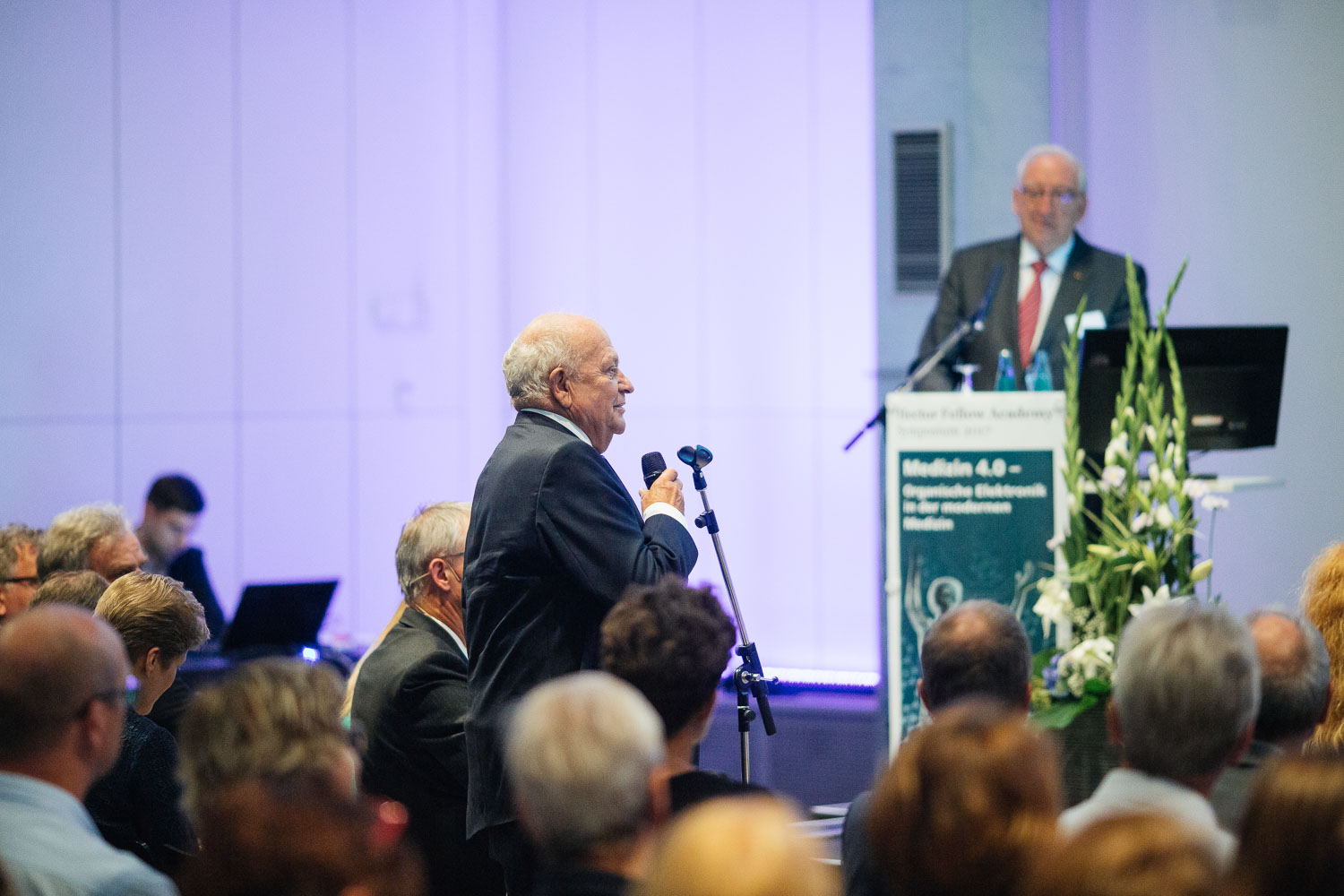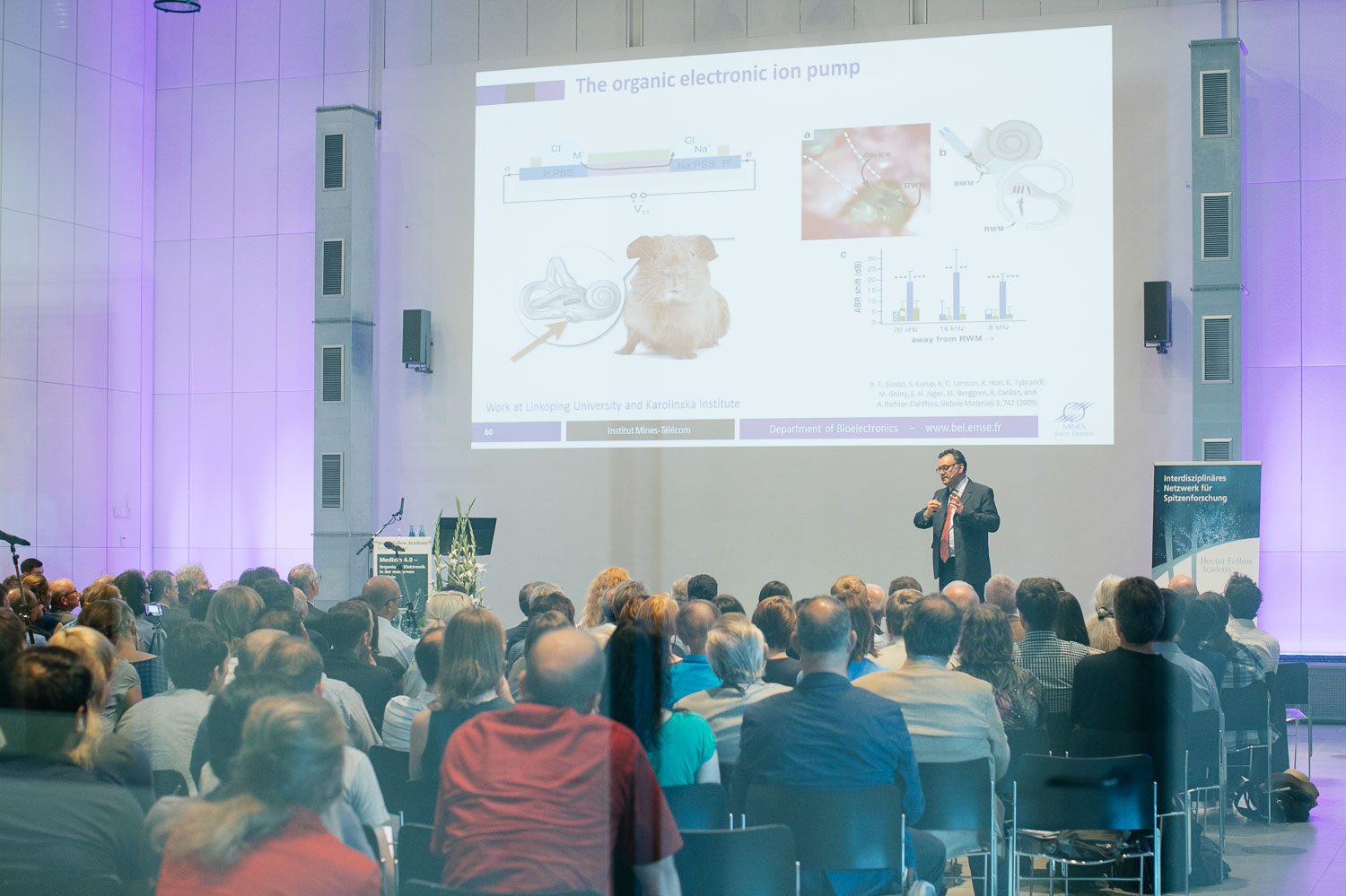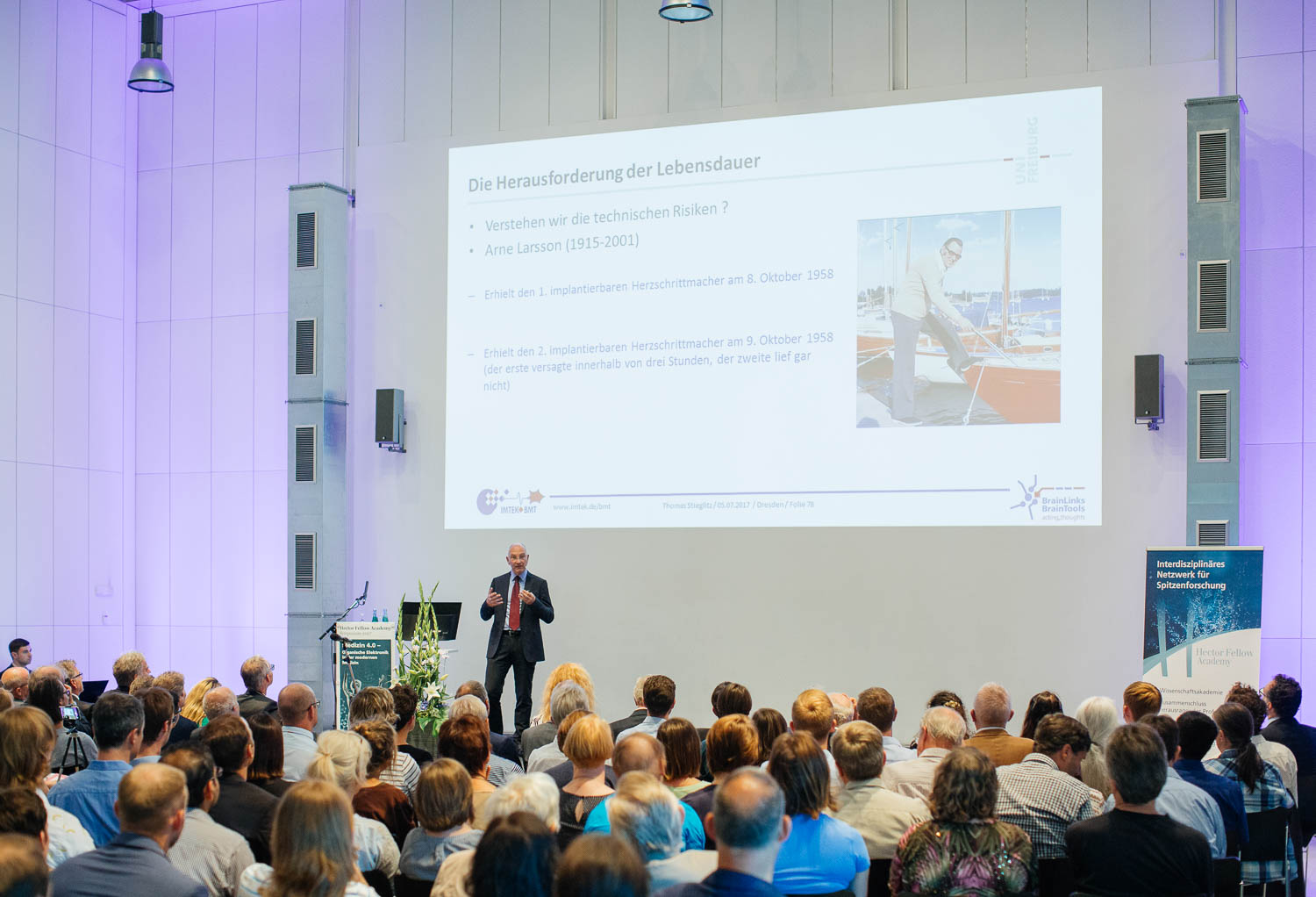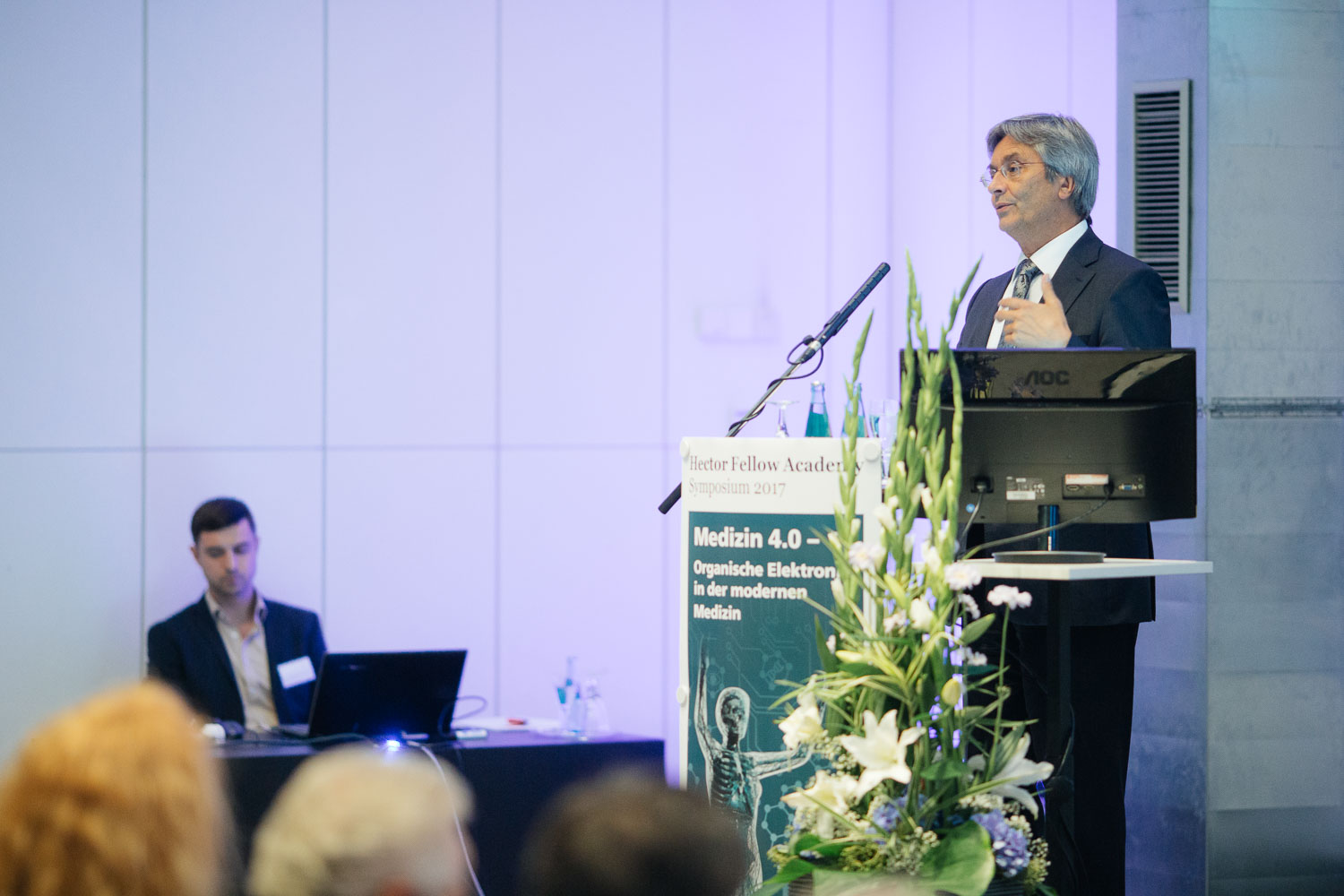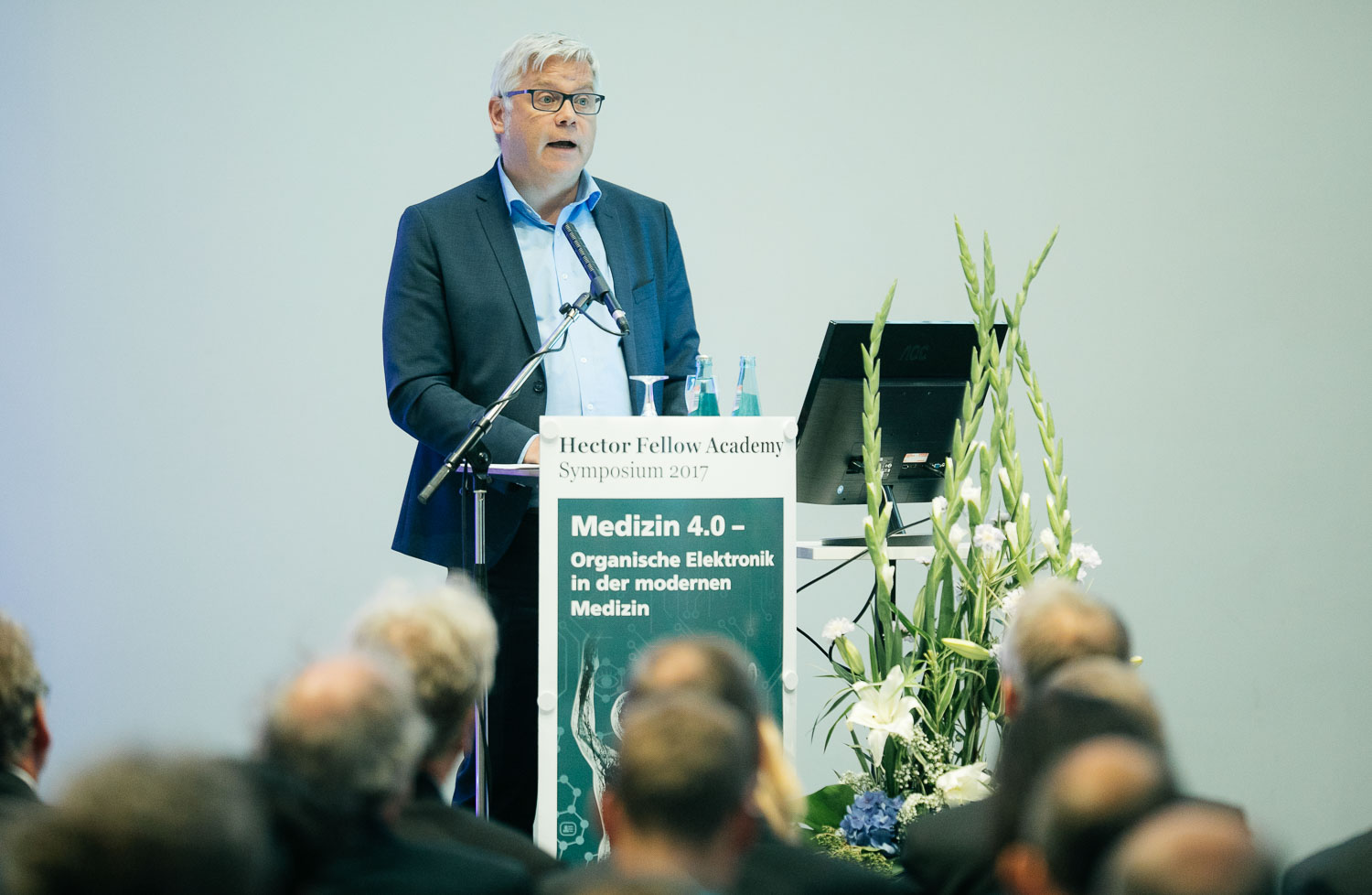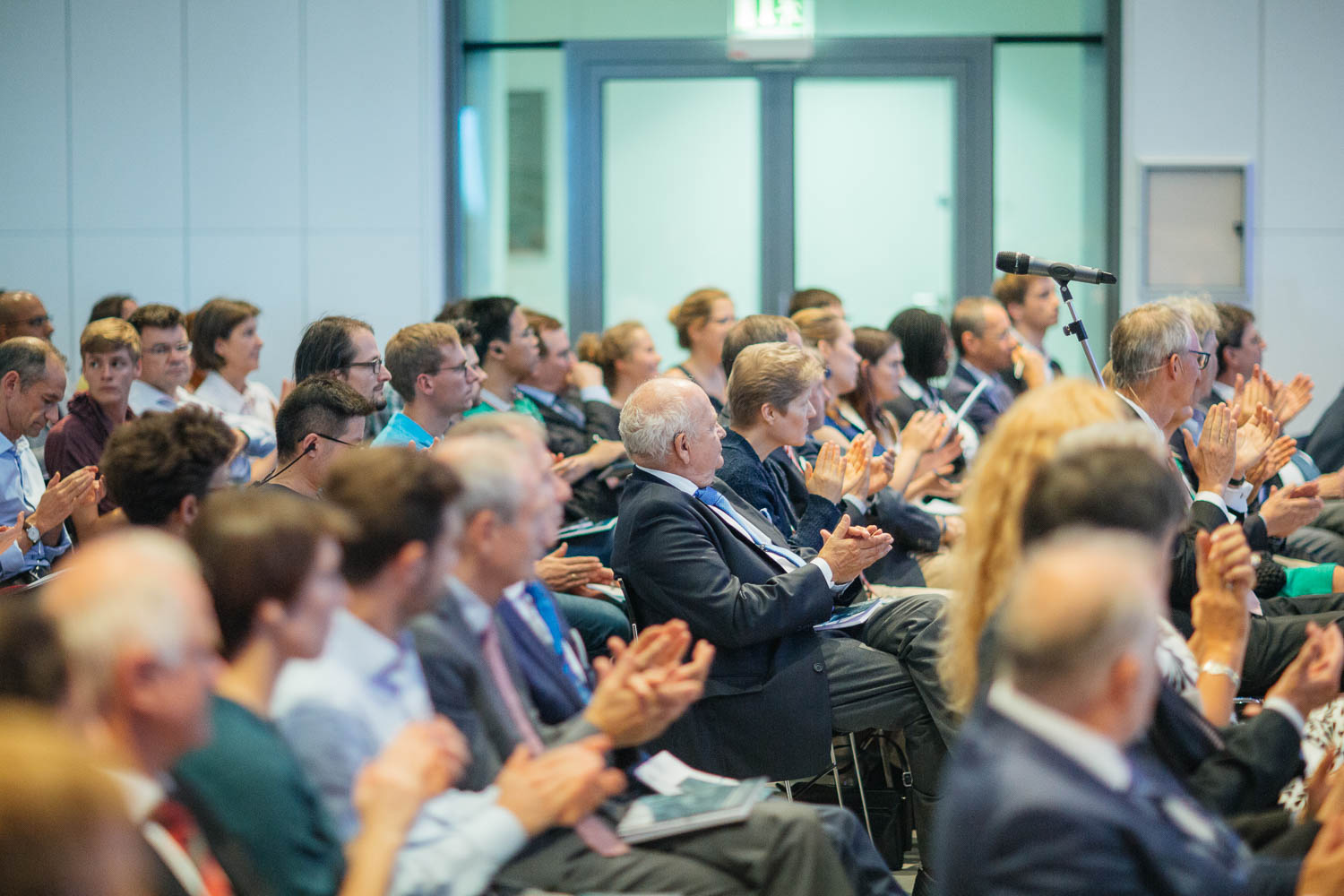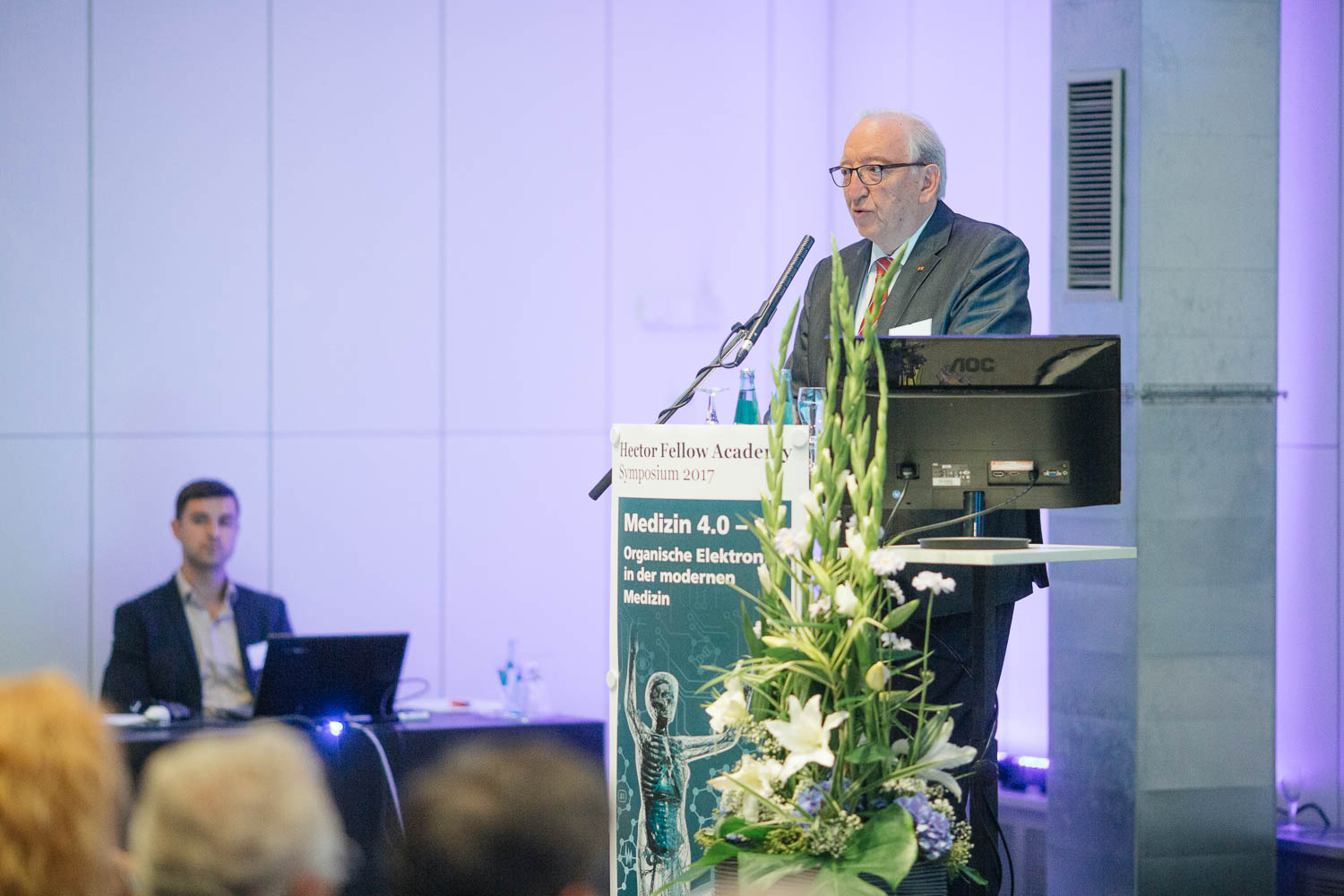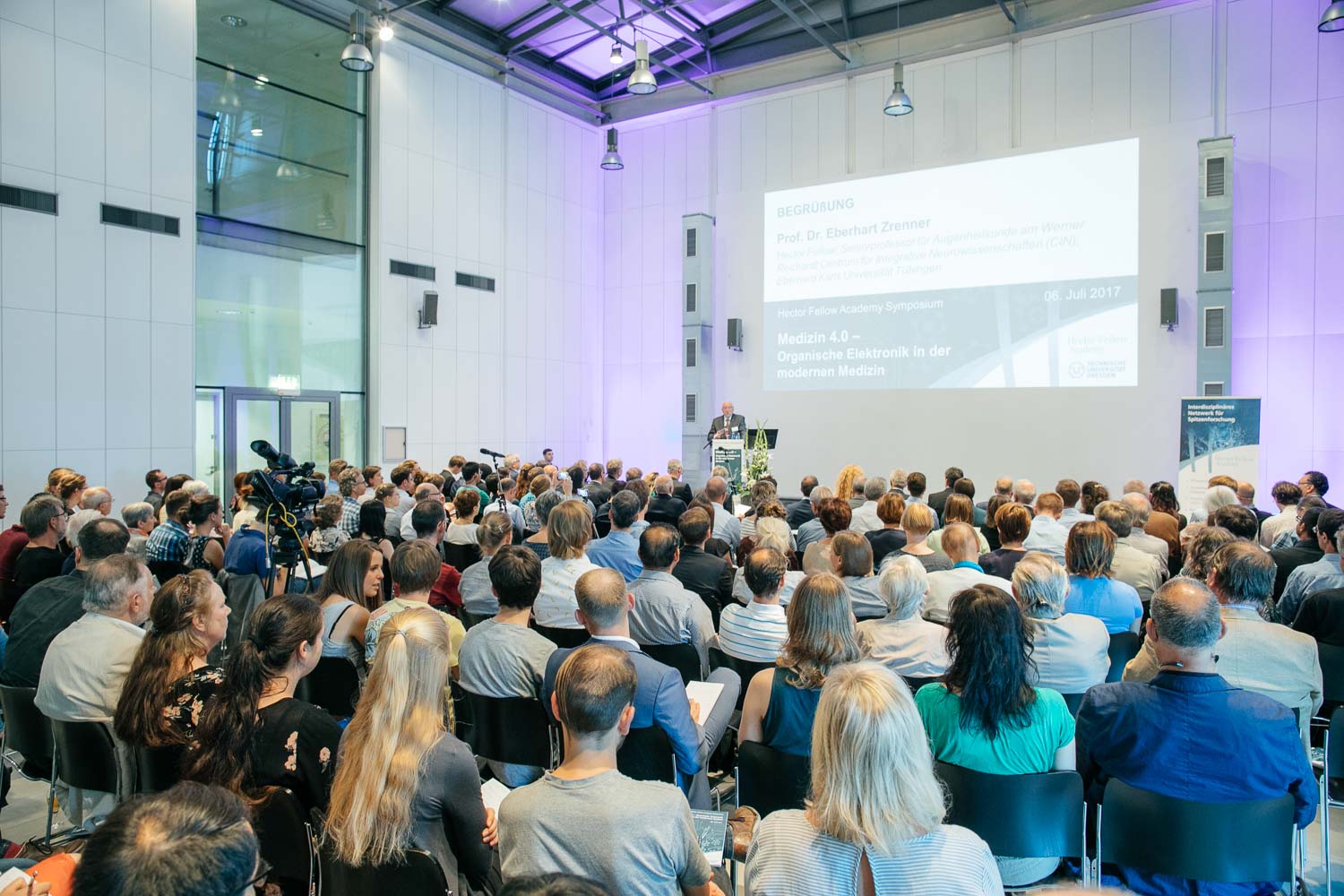Medicine 4.0 — Organic electronics in modern medicine
Science Evening 2017
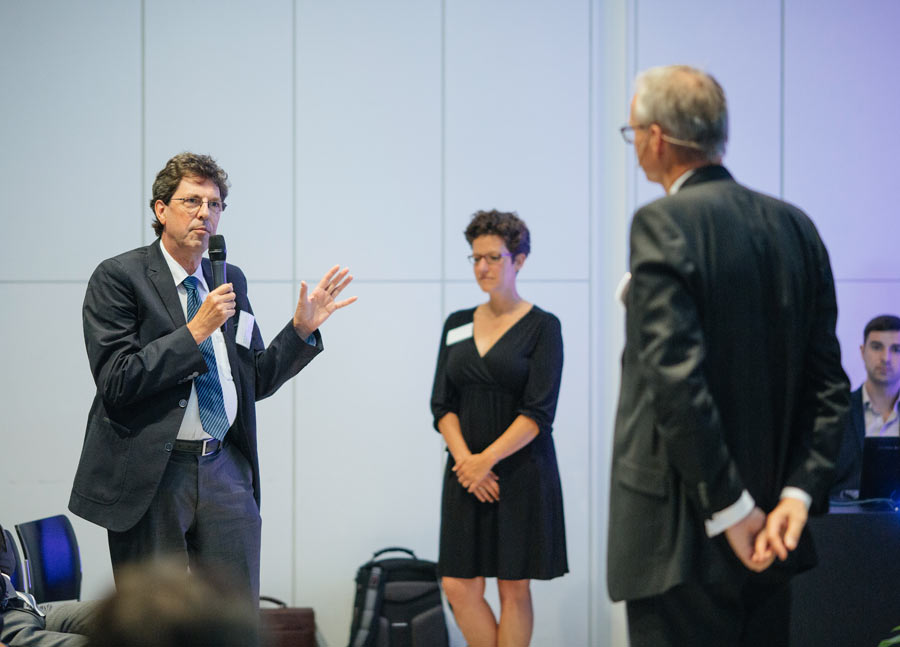
"Science has arrived where Star Trek has stopped"
Public event highlights potentials and fields of application of organic electronics in medicine.
On July 6, 2017 the third Science Evening of the Hector Fellow Academy took place in Dresden. The public event on "Medicine 4.0 — Organic Electronics in Modern Medicine" was organized in cooperation with the Dresden University of Technology and attracted numerous visitors to the Deutsches Hygiene-Museum Dresden on Thursday evening.
Nearly 200 participants, among them invited guests from politics, science and industry, as well as affected people, doctors and interested citizens, were able to gain insight into the potential and application fields of organic electronics in medicine.
Prof. Dr. Eberhart Zrenner, Hector Fellow and senior professor for ophthalmology at the Werner Reichardt Center for Integrative Neurosciences in Tübingen guided through the evening filled with exciting lectures and lively discussions. The event was opened with the welcome of the Rector of the TU Dresden, Prof. Dr. Hans Müller-Steinhagen, as well as the Secretary of State Uwe Gaul, who delivered the speech of the Saxon State Minister for Science and Art, Dr. Eva-Maria Stange.
To the videos of the welcome and greetings.
Prof. Dr. Karl Leo, Hector Fellow and Head of the Dresden Integrated Center for Applied Physics and Photonic Materials (IAPP) at TU Dresden, gave interesting insights into the field of organic electronics and showed the great potential of this technology for various fields of application. The technologies developed in Dresden are already found today in mobile phone displays. In addition, his group is currently investigating new, flexible organic solar cells. In the medical field, organic electronics opens up great opportunities for the development of innovative implants, such as the novel retina implant, in which Karl Leo is currently researching in an interdisciplinary project with Eberhart Zrenner, funded by the HFA.
Moderation
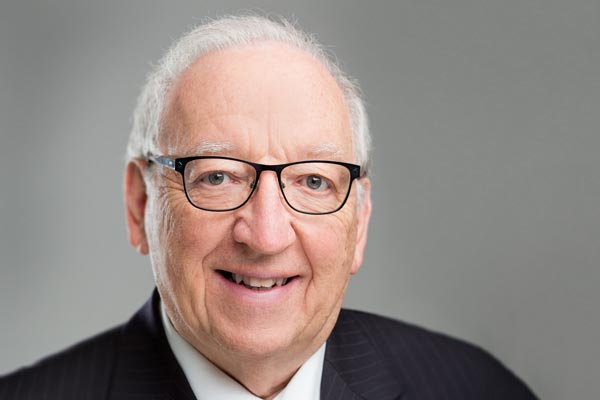
Eberhart Zrenner
Medicine, Biology & Engineering Hector Fellow since 2012
Hector Fellow since 2012
Organic electronics
New applications
In his talk, Hector Fellow Prof. Dr. Karl Leo will provide interesting insights into the field of organic electronics and demonstrate the great potential of this technology for a wide range of applications.
Video in German
In the following lecture, Prof. Dr. George Malliaras, Head of the Bioelectronics Division (BEL) at the École des Mines de Saint-Étienne in France, explained the use of organic electronics to interface with the brain. The development of novel technologies for the interfacing with the brain promises a better understanding of brain functions and thus a great advance in the diagnosis and treatment of numerous pathologies such as Parkinson's disease or epilepsy. Thus, for example, George Malliaras has already successfully worked to make the measurements of brain activities non- or minimally invasive, while at the same time ensuring the highest accuracy in the localization of the affected neurons.
Interfacing with the Brain using Organic Electronics
Professor George Malliaras, Head of the Bioelectronics Division (BEL) at the École des Mines de Saint-Étienne in France, explains the use of organic electronics to interface with the brain.
Prof. Dr. Thomas Stieglitz, Professor of Biomedical Microtechnology at the Albert-Ludwigs-University of Freiburg, subsequently demonstrated the great potential of polymer-based interfaces to the nervous system. In his speech, he presented fields of application such as intelligent implants and "feeling" prostheses. In addition, he explained the function of novel methods for lowering blood pressure, which instead of using drugs work with targeted electrical stimulations of the pressure sensors in the blood vessels. Thomas Stieglitz, however, also made it clear that the development of these promising new technologies simultaneously requires a discourse on ethical and societal consequences and is associated with some challenges.
Polymer-based interfaces to the nervous system
Thomas Stieglitz, Professor of Biomedical Microengineering at the Albert Ludwigs University of Freiburg, will demonstrate the great potential of polymer-based interfaces to the nervous system in his presentation.
Video in German
In the final discussion there was an exciting exchange with the audience, in which the previously presented topics were further deepened and additional perspectives were illuminated. The numerous and very diverse questions of the audience emphasized the relevance of the subject area and the great potential but also unresolved issues in the use of organic electronics in medicine.
In order to foster the dialogue between science and society, the Hector Fellow Academy annually organizes a science evening, which deals with the central questions of our time and bridges the gap between current research topics and societal challenges. The next Science Evening of the Hector Fellow Academy will take place on July 19, 2018 in cooperation with the LMU Munich and the Max Planck Institute for Quantum Optics on the topic "Quantum Science & Technology".
Image gallery
George Malliaras
BioelectronicsHead of Bioelectronics (BEL) at the École des Mines de Saint-Étienne in France
Thomas Stieglitz
Biomedical MicrotechnologyProfessor for Biomedical Microtechnology at the Albert-Ludwigs-University Freiburg

Karl Leo
PhysicsHector Fellow since 2013



